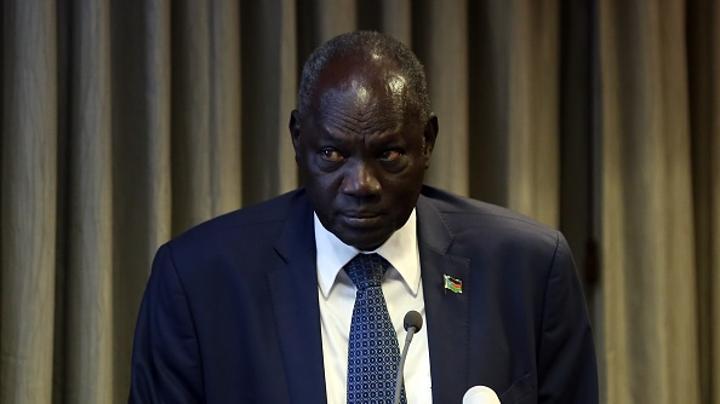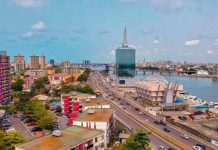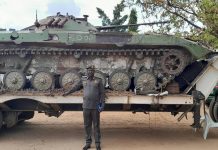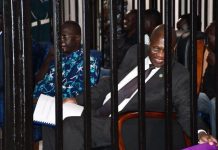Jenifer James
Africa-Press – South-Sudan. The government spokesperson, Michael Makuei, responded to the UN report accusing the government of media censorship, saying the actions taken by the authorities are for the convenience of the media houses and the journalists.
Makuei who addressed the media after the Council of Ministers’ meeting conceded that “we sometimes remove articles from the newspapers when you (journalists) write an article that is hate speech.”
The report by the UN Commission on Human Rights in South Sudan, which was released on Thursday, urged the government to “urgently cease unlawful media censorship, end intolerable restrictions on civic and political activities, and halt attacks on journalists and human rights defenders.”
But the bold government spokesperson said what is considered media censorship is actually misconstrued as the authorities avoid exploring the legal channels, which, according to him, would be costly for the media houses.
“When you write an article that is hate speech, inciting hatred, or anything, such an article ought to be removed,” he said.
“We don’t want to move against the author of that letter or of that article, and we don’t want to move against the newspaper or the media that printed that article.”
According to Makuei, removing articles from the newspaper is a protective measure instead of waiting for something to happen to prompt the government to react.
“For the interest of all, we remove that article and keep quiet because it is unhealthy, it is insecure, If the article is inciting hatred, then it ought to be removed. Instead of us allowing it to go to the public and then people fighting over it and causing insecurity, we would prefer to take it out.”
He added, “If you want us to take people to court, we will do that because we believe that removing the article and keeping quiet is better than taking that person to court.”
According to Makuei, no journalist has ever been arrested, and this is a very clear indication that the government is heading to the right direction.
“I have not received a report or a complaint from a journalist saying that the security organs have harassed him. If anything, as such, it should have been reported to me,” he said.
He slammed the human rights reports saying majority of them are products of “cut and paste.”
“If you follow them closely, you will find that there is nothing new, but it is that report from last year that they cut and pasted without any changes.”
Yasmin Sooka, the chairperson of the commission, stated in the report that the media is crucial to the people, and it makes the government accountable for all their actions.
“Independent media and a vibrant civil society represent critical voices in developing accountable governance and the democratic processes required to enable peace and ensure human rights,” said Sooka.
“Surprisingly, the government instead treats journalists and civil society members who voice critique as enemies of the ruling political party, reflecting its extreme intolerance of all forms of public scrutiny and critical views. This does not bode well for democratic prospects.”
The report alleges that the National Security Service (NSS) directs that civil society should review any content about the election that will be shared to control the situation and avoid panic.
The UN also stated that independent online media experience a hard time because they are mostly targets of cyber-attacks and website blockages.
“Individuals who do not follow these rules experience a rough time of surveillance, intimidation, and human rights violations,” the report alleges.
The report was titled ‘The Entrenched Repression Imperial Prospects for Peace, Human Rights, and Credible Elections’.
Source: The City Review South Sudan
For More News And Analysis About South-Sudan Follow Africa-Press






